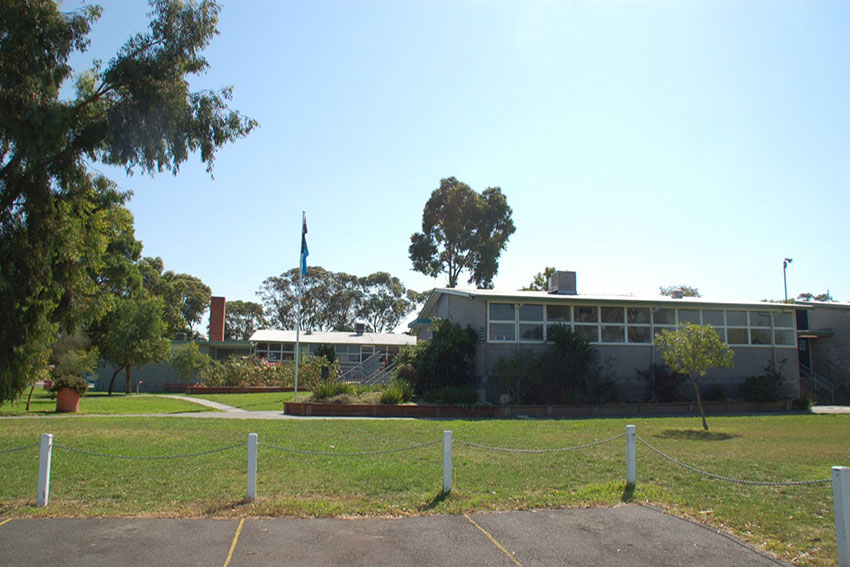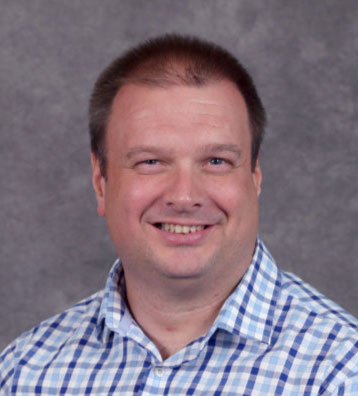How ICAS data helps Oakleigh South improve their curriculum

Oakleigh South Primary is a 1000-student school nestled between two golf clubs in Melbourne’s south-east. It’s the second-highest performing school in Victoria, and for good reason – their staff are constantly looking for ways to improve their students’ education.
As the school’s Year 3 team leader and data specialist, Nigel Hooley (below) is one of them. In addition to teaching Mathematics and STEM subjects to Oakleigh’s students, Nigel regularly analyses the reams of assessment data collected every year to figure out how it can best be used. This data allows direct insight into student performance for the various strands and sub-strands that make up the curriculum, which gives him evidence on changes that need to be made; evidence he passes onto teachers.

But while they receive plenty of rigorous data in the form of NAPLAN and other assessments the school runs throughout the year, there’s one style of assessment that is time-consuming to create but also important: an assessment that tests students’ higher-order thinking skills. And for an elite school like Oakleigh South, where improvements can be harder to come by because their students are already doing so well, testing them for this type of advanced skill can give the school an all-important edge. It helps them develop an even sharper picture of their students’ abilities, and to discover improvements for realising their full potential.
How does a school like Oakleigh South test students’ higher-order thinking skills? One of their methods is ICAS. For Nigel, the unique question style of the competition gives them valuable information on this advanced form of thinking:
“The way the ICAS assessment is written is less like NAPLAN – students need to think outside the box, which plays to their strengths and gives us a really good data point. It makes us think about how we deliver the curriculum.”
Improvements to Oakleigh South’s curriculum are crucial, and as the school’s data learning specialist, Nigel runs a team that focuses on this very thing – the Data-Wise team, named after the Harvard University course from which they graduated. After receiving their students’ ICAS results for the year, they knuckle down and figure out how they might be used.
“We sit down with the results data and drill down into the question level stuff – where are our kids performing well? How does this marry up with our essential assessments and NAPLAN data? Where are the similarities and differences? And how can we use that to enhance our curriculum? By coming together as a team, we can really focus and drill down into the specifics of what we need to teach.”
But important as it is, having great assessment data is just one piece of the puzzle. At a leading school like Oakleigh South Primary, keeping students engaged is a daily challenge for Nigel and his colleagues. This is especially true for their high ability groups – the crème de la crème of the school. To give you an idea of how tough this can be, one student is in Year 3 but works at a Year 9 level for Maths, and giving this student the same work as the rest of their year may quickly lead to boredom and disengagement. The school solves this (in part) by giving ICAS questions to these groups of students:
“We have [high] ability-based teaching groups twice a week, and use ICAS questions to really challenge their thinking. I’ve had a few year levels where it was fantastic to use those questions because it really helps to engage high-achieving students. If you’re not engaging your high achievers, you’re going to lose them!”
ICAS questions are based on various curricula from around the world, including from Australia, New Zealand, Singapore and others. This can make the questions even more engaging for students because they can encounter fresh material; content that really challenges them to be their best.
“We can get stuck with the Victorian curriculum. When you start comparing it to the curriculums of New Zealand, Singapore and others, you realise they’re widely varied. ICAS is good for our kids because the questions are pitched across these different curricula, getting them to really think and providing them with additional experience.”
Where does this lead for many students? Excitement! As with the children at Jireh Christian School in New Zealand, many of Oakleigh South’s students look forward to the competition so much that they badger the coordinator – Nigel, in this case.
“They love ICAS – the kids know I coordinate it, and it’s got to the point where they are asking me when the competition is coming up. They’re super excited and love competing! It’s really nice to see.”
Between fending off excited students, analysing ICAS results to create better learning strategies, and teaching his core subjects, Nigel has his hands full. We’re delighted that ICAS gives him the data he needs to build an even better school for his students, while boosting their engagement at the same time.
We’ll be keeping a close eye on the number of medals the school wins this year – good luck Oakleigh South Primary School!
Nigel in one of our medal winner videos from 2022
Tag:Case study, ICAS
 Nigel Hooley
Nigel Hooley


